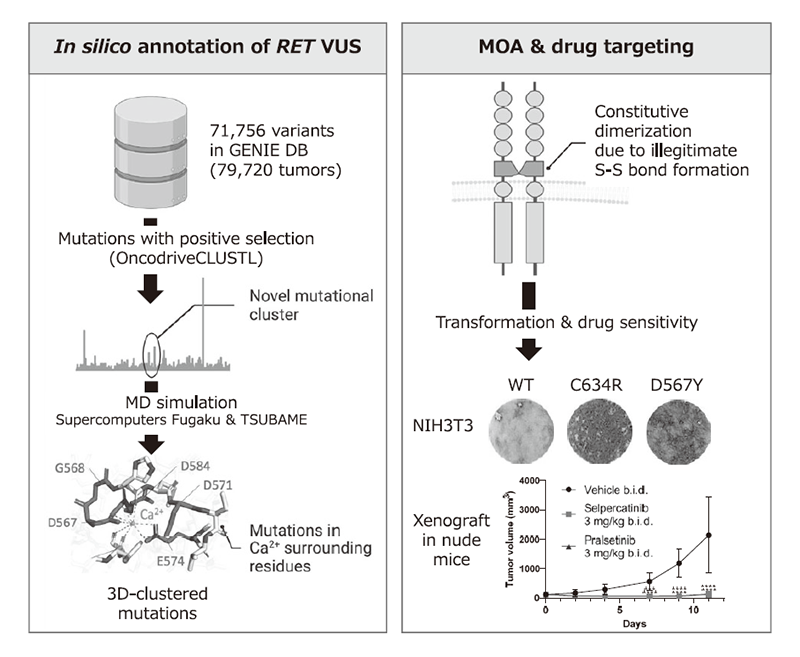Annual Report 2022
Division of Genome Biology
Takashi Kohno, Kouya Shiraishi, Takashi Nakaoku, Kuniko Sunami, Shu Yazaki, Makoto Nishino, Masayuki Shirasawa, Junya Tabata, Tomoka Asami, Takaaki Mizuno, Kosuke Maruyama, Kengo Hiranuma, Shigenari Nukaga, Ryoko Higashiyama, Atsushi Kawamura, Hourin Cho, Erika Machida, Akihumi Mochizuki, Yoko Shimada, Ayako Otsuka, Maiko Matsuda, Megumi Ishigami, Kazumi Uchiyama, Keiko Miyoshi, Ayako Ui
Introduction
The goal of our research is to understand the genomic information of cancer cells and tissues as well as cancer patients and to understand their biological significance in order to elucidate the characteristics and properties of cancer and to identify and put into practice the seeds of cancer prevention, diagnosis, and treatment targets that will contribute to personalized medicine. The research is being conducted in collaboration with the staff of our center's hospital and other institutions.
The Team and What We Do
The research is being conducted in collaboration with the staff of our center's hospital and other institutions.
Research Activities
Since more than 90% of RET mutations in various cancers are of unknown significance (VUS), we conducted biochemical and biological experiments and molecular dynamics simulation studies to determine the significance of these mutations. By taking this approach, we identified novel calcium-binding ablating mutations that induce constitutive RET activity and drive tumorigenesis (Figure1).
We conducted a project of whole genome sequencing analysis of lung cancer and had discussions on how to implement whole genome sequencing analysis in cancer genome medicine. We identified variants of genetic factors that possibly promote the development of AYA generation (15-39 years old) cancer and analyzed their associations with AYA cancer risks. We participated in multiple international lung cancer collaborations to search for genetic factors that define risks for lung cancer.
In collaboration with NCCH staff, we have identified genomic alterations in early-stage lung adenocarcinoma and the molecular profiles associated with the efficacy of immune checkpoint inhibitor therapy. In conjunction with this work, we also revealed the relationship between genomic profiles of gynecological tumors such as cervical cancer, endometrial cancer, and ovarian cancer, and treatment efficacy and prognosis.

Clinical Trials
Patients who participate in the clinical trials investigating the therapeutic efficacy of RET-specific inhibitors will be the focus of our research in understanding and overcoming acquired drug resistance.
Education
We have mentored graduate students and young researchers with their research and presentation skills.
Future Prospects
Genome analysis of lung cancer, gynecological cancer, and AYA cancer is expected to identify target molecules that will contribute to the development of new prevention, diagnosis, and treatment methods. We seek to contribute to promoting precision cancer medicine by linking this analysis with gene panel tests, which are covered by Japan's national insurance system.
